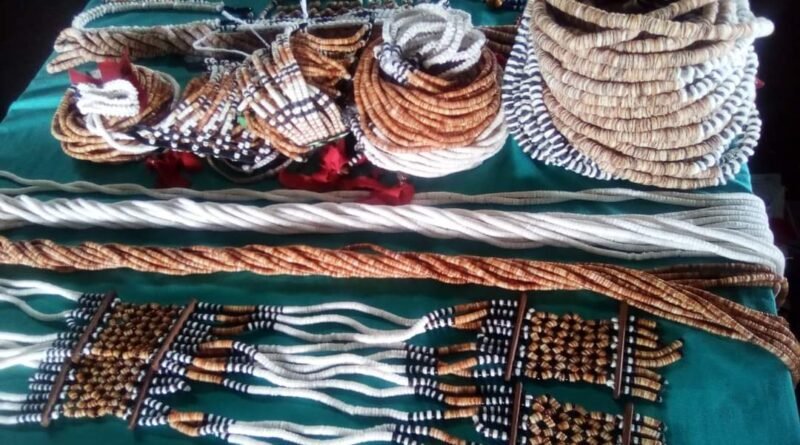Surviving the Ancient Tradition of Langalanga
BY JOY OFASIA
IN the region of Langalanga Lagoon, women in communities still carry on the ancient practices of making shell money.
The ancient tradition has survived to our times and has been recognized in the Solomon Islands as Malaita province’s cultural heritage.
Goreti Wale is one of the many shell money producers in the country. She realized the great potential of acquiring the tradition was not only to support her large family that includes her children and her grandchildren, her small business (income-earning activity) but to teach the tradition to her children as a way to revive, survive, preserve, and protect the survival Langalanga’s cultural heritage.
From Abalolo Village, Langalanga Lagoon, Goreti grew up learning and practicing the ancient tradition (age-old) of making shell money from her mother. On the other hand, she recognizes the need to preserve and protect the survival of Langalanga’s traditional art of making shell money.
“The survival of the traditional art of making shell money is very much dependent on the responsibility of shell moneymakers of Langalanga to teach our young children and people about the rich history, knowledge, and skills on how to produce shell money,” she told Solomon Women.
Goreti, who resides at Vara Creek in Honiara continues to produce and sell traditional shell money including a wide range of seashell jewelry and body ornament at the Honiara Central Market to this day.
She now continues to teach her children about the rich art of shell money-making at her home residence.
“Although the crafting of shell money is hard work; I know the importance of teaching the traditional art to my children, knowing that they too will understanding and learn how to ensure creativity, and patience whilst making this valuable traditional currency,” Goreti said.
As a primary breadwinner, Goreti has over the years been dependent on her craft to earn money for the daily survival of her family.
“My family relies heavily on the incomes of my business especially to meet and support our survival in Honiara. It has allowed us to support our basic urban needs and wants in such challenging times as we experienced impacts of the pandemic in our country,” she said.




